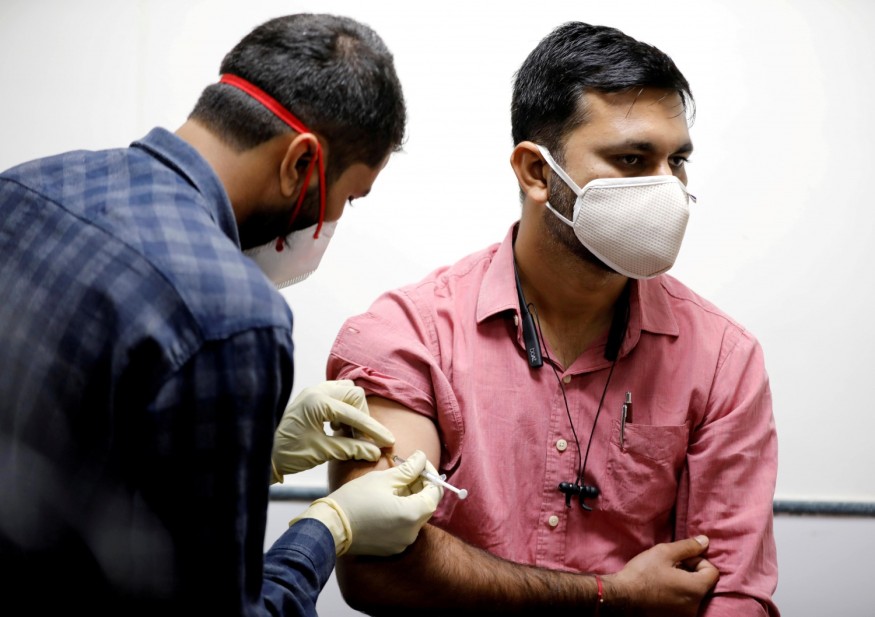
Despite insufficient efficacy evidence, some experts have expressed alarm regarding the 'hasty clearance' given to the two COVID-19 vaccines.
On Sunday, the country's drug regulator granted emergency usage of the Oxford COVID-19 vaccine Covishield, produced by the Serum Institute of India (SII), and Bharat Biotech's indigenous vaccine Covaxin.
This, even though the main third step of clinical trials of Covaxin - the vaccine is offered to thousands of patients and tested for effectiveness and protection - has not been completed.
The regulator's guarantees have not placated many scientists and health professionals that the vaccination is healthy and offers a good immune response. A watchdog, the All India Drug Action Network, said it was perplexed to grasp the empirical rationale of accepting an incompletely tested vaccine.
Missing Efficacy Rate
Dr Gagandeep Kang, one of India's most eminent medical specialists, told the Times of India newspaper that she hadn't seen anything like this before. She added that there is simply no evidence on effectiveness that has been submitted or released.
Social media users were able to find out that it was a matter of concern to authorize the vaccination before studies were complete, regardless of how secure or successful the vaccine actually turned out.
Bharat Biotech’s Covaxin might turn out to be best Vaccine in world. That’s not the Point. Concern is that it has been approved without Peer Reviewed Phase 1-2 results and incomplete Phase 3 Trial. Govt saying it is 110% safe is not Data and “Give it a Chance” is not strategy
— Joy (@Joydas) January 3, 2021
But Krishna Ella, Bharat Biotech's chairman, met with reporters on Monday and said they did not hurry Covaxin's approval. He listed previous cases where, based only on immunogenicity evidence, emergency authorisation approvals have been issued.
He said that they can get emergency approval for the vaccine under Indian rules, based on meeting five requirements after Phase 2 trails.
Dr. Ella added that they would finish the Phase 3 studies shortly. They would give the vaccine's efficacy results by February. He explained that the organization already has 20 million doses available except to manufacture about 700 million doses this year.
He said they have four facilities coming up. In Hyderabad, they are preparing to create about 200 million doses and in other cities 500 million doses.
A Matter of Trust

The emergency authorization also triggered a fierce discussion on social media between ministers and opposition parties. India's Health Minister, Dr. Harsh Vardhan, called on opposition parties not to "applaud" the "prowess" of the nation in developing a vaccine locally. India provides over 60 percent of the world's vaccinations.
This is all we are saying. Of course we will be proud if the vaccine turns out to work effectively. But offering it before Phase3 clinical trials have proven efficacy is a violation of every scientific protocol &unheard of in the world. Jingoism is no substitute for common sense. https://t.co/aRlU8TvYHT
— Shashi Tharoor (@ShashiTharoor) January 4, 2021
Among those who posed questions regarding how Covaxin was accepted were representatives of the key opposition Party of Congress, Shashi Tharoor and Jairam Ramesh, and former Uttar Pradesh State Chief Minister, Akhilesh Yadav.
In an interview with the Associated Press, Adar Poonawalla, whose AstraZeneca Oxford vaccine is produced by the Serum Institute of India (SII), reported that they issued the jab emergency permission on condition that it will not be shipped outside India.
Mr. Poonawalla claimed that his firm, the largest vaccine producer globally, was still not authorized to offer the vaccine to the private sector.
This raised fears in India's neighboring countries, including Nepal and Bangladesh, which depended largely on the SII to begin vaccinating their populations.
Check out more news and information on COVID-19 on Science Times.
© 2026 ScienceTimes.com All rights reserved. Do not reproduce without permission. The window to the world of Science Times.











